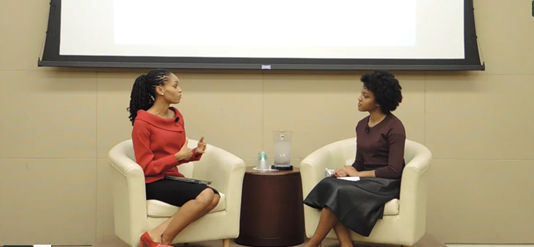Miss Jamaica World’s take on gender inequality and how she became a philanthropist and role model for Caribbean women
Dr. Sanneta Myrie started life with the odds stacked against her. She was born to a very young mother and raised in one of Jamaica’s toughest neighborhoods, the inner-city community of Greenwich Town. Always keeping her humble beginnings in mind, Sanneta gives credit to her adoptive father for giving her a “second chance in life” to reach for her dreams and make the most out of every opportunity she is given. She excelled in school, went on to complete medical school—all while participating in beauty contests, which gave her an enviable platform as a role model for girls throughout the Caribbean.
Crowned in 2015 as Miss Jamaica World, Sanneta uses the platform to advocate for the causes she believes in, including gender equality, access to education and healthcare. She recently was invited to speak at the headquarters of the Inter-American Development Bank in Washington D.C., where she discussed her philanthropic efforts and shared her perspectives on non-traditional gender and occupational roles in the Caribbean.
In many parts of the world, women face restricted access to education and limited opportunities to succeed in careers that are non-traditional for their gender, such as medicine, engineering and technology. Gender equality plays a great role not only in their personal development but also in the development of a country’s economy. Sanneta notes that gender equality in the workplace, which ensures that women can participate fully, contributes to economic development and growth.
Trained as a medical doctor in her native Jamaica, Sanneta hopes to one day volunteer with the international group Doctors Without Borders. Miss Jamaica World Organization (MJWO) and Fusion Consulting Jamaica organized Sanneta’s recent trip to Africa, where she volunteered with the Shashamane Sunrise Foundation, a volunteer organization that supplements and fortifies children’s education in developing countries. The tour included a visit to Ethiopia, Kenya and Uganda, where she called on local communities to join forces with the volunteers.
Fully embracing the “Beauty with a Purpose” mantra of Miss World, MJWO has collaborated with various non-governmental organizations in Jamaica, including The Heart Foundation of Jamaica, and the School for Therapy, Education and Parenting of Children with Multiple Disabilities Center as well as the United States-based United Missions of Good Will.
When Sanneta isn’t busy representing Jamaica and the Caribbean, in her spare time she is a cross-country and distance runner and loves dancing. But what is the role she feels most privileged to have?
Watch the video below to find out:
https://vimeo.com/171180312
Empowerment starts at home- with one’s partner
Sanneta believes that collaboration and partnership inside the home is essential if women are to break the glass ceiling in the workplace. She believes in the UN’s He For She Campaign, a campaign made popular by the actress Emma Watson, which encourages men and boys to stand up for the inequalities that women face. She says, “When we think of marriage, having an empowered woman can help the union within itself. To advocate for our women, as men, to have equal rights, equal pay and the ability to break the glass ceiling can only help the partnership between a man and a woman. If a woman is to help and supplement in the workplace or a corporate setting, you want a woman who has been given the opportunities to be adequate for her job to effectively and efficiently support the framework that is needed to achieve any task.”
https://vimeo.com/171179102
Being a Woman is not a Barrier to Studying in Jamaica
As a young woman in the previously male-dominated field of medicine, Sanneta was surprised to see that girls outnumbered the boys by a ratio of 4:1. Women are free to go after the “non traditional roles” including engineering, science and technology and succeed in them.
In Jamaica, there are no formal gender restrictions in education or in occupations that you may find in other countries; however, it doesn’t mean it is always easy. Although she, with her humble upbringing, managed to complete her studies, not all of her fellow classmates could afford to stay in school.
Interestingly, Sanneta believes that young women may actually have a certain advantage in the academic space. “The disparity between women and men in academics is driven by a complex mechanism: a cultural problem,” Sanneta shares, “There is a cultural idea that books are feminine, and more pressure is put on girls to succeed in academics in comparison to boys.”
https://vimeo.com/171178222
Broken Homes lead to Broken Health?
In Jamaica, a high percentage of households are headed by a single parent who struggle to raise their children in a difficult environment. Having been raised with her brother by her adoptive single father, Sanneta knows how important it is for children to have both parents in the home. There are certain things that only a mother can teach and only a father can teach but more importantly a partnership of two caring parents is essential for the emotional and intellectual development of children.
Raising a child on one’s own can be extremely stressful for a parent. For women, especially, it has been noted that heart disease is the number one killer and is directly linked to stress.
There is a strain on healthcare in Jamaica because citizens wait to see the doctor until the problem becomes so severe. By that time, urgent care is often required, which is costly not only for the patients but the government’s healthcare system.
https://vimeo.com/171180994
As you can see, Sanneta is full of interesting ideas. She hopes to touch as many lives as she can through medicine and performing arts.


Leave a Reply